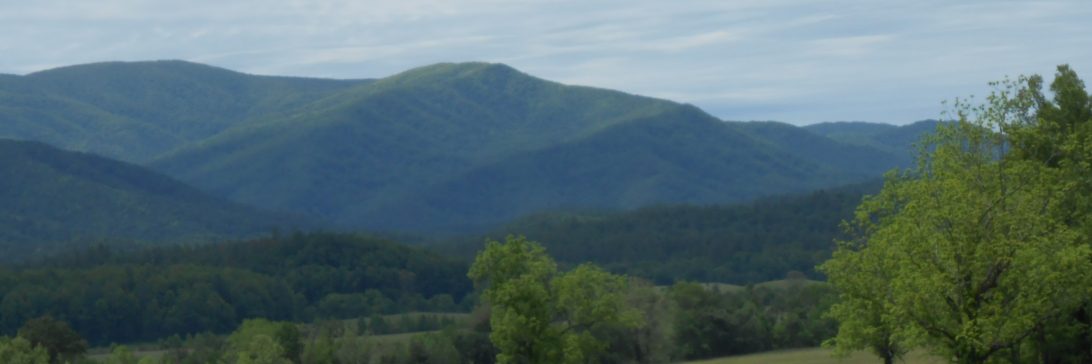Okay, I confess that I have a love/hate relationship with Bradford pear trees. I love the way they look in the spring, with beautiful flowers and the pyramid shape of the tree’s limbs illustrating praise to the Lord our God, and our Creator. I hate the way the trees smell!
Even though I still hate the smell, I have become aware that the smell of the flowers has a significant role to play in the overall environmental scheme.
Indeed, we believe that God, the LORD, created all things and He created it so that all creatures’ needs would be met, even the Bradford pear tree’s needs, and it is all to His glory!

The Psalmist says:
The earth is the LORD’S, and everything in it, the world, and all who live in it.
Psalm 24:1 [NIV].
Now even though it has been a long time since I was in science class in school, I do remember that flowers and trees usually need fertilization to survive and procreate and, for the most part, that comes from pollen being transferred from one plant to another. What I have failed to recall (assuming I knew it in the first place, of course) is that flowers are one way that the plant communicates with insects for fertilization purposes. In short, the flower’s fragrance is a telegraphic invitation that is sent to, and received by, an insect a long distance away. In response to that invitation, the insect will come over and bring pollen with it, take pollen from the flower, etc. All of this, of course, being in God’s plan so that His creation could thrive and renew itself on a continuing basis, for the blessing of the acme of His creation, human kind, and all to His glory.
Back to the Bradford pear tree – I have been informed that flowers with bad fragrances (shall I say “odoriferous flowers”?) will attract carrion insects, specifically, those flies and beetles that feed off feces, rotting flesh and other decaying organic matter. Granted, I had not really thought about how dead things disappear in the normal course of nature. But, it does not strain the mental capacity to think that if there were not “carrion insects” or other such creatures, the decaying corpses of numerous animals, birds, etc., would become overwhelming in a very short time. So they have a significant role to play in our world.
Specifically, blowflies are one type of carrion insects. They are so “skilled” in what they need, one expert opined that they can locate a dead carcass within hours, and they can smell the odor of a fresh or rotting carcass up to a mile away. [See: http://www.harnett.org/coop/March-7-2008-ask-the-hort-agent.asp?v=p ]
The connection with the Bradford pear tree is that the blowfly is the primary insect that pollinates the Bradford pear tree flower. The flowers of the Bradford pear tree smell like a rotting animal and that attracts the blowflies which are necessary to pollinate the flowers. It reminds me of the adage that one man’s junk is another man’s treasure. Apparently, what I think is putrid, the blowfly thinks is wonderful.
It seems to me that bees might do just as well since I think that is one of the primary functions of bees in our gardens, woods and forests. But, the Bradford pear tree is one of the first bloomers in the spring and there are often “cold snaps” during the time the flowers are in bloom, so the blowflies could do that which the bees would have done if they were around when the flowers showed up.
This is not meant to be a science lesson. Rather, it is intended to point to just one of the gazillion, countless, ways that our LORD has established His creation by providing the creatures to pollinate the flower and by having the flower smell just right to entice the creature to come it. Jesus talked about God’s love for His creation. In Luke he says:
Are not five sparrows sold for two pennies? Yet not one of them is forgotten by God. Indeed, the very hairs of your head are all numbered. Don’t be afraid; you are worth more than many sparrows.
Luke 12:6-7 [NIV]
Clearly, one of the lessons Jesus is teaching here is that God loves His creation including even the small birds of the air –sparrows which are bought and sold for less than 1/2 penny each are known and not forgotten by the Creator God.
Our God, Who created the earth and called it good, cares for the birds and flowers, and even provided the blowflies as part of the circle of life. Each one is part and parcel of the system so carefully established by God. It is not happenstance – it is not luck. Rather, it is the detailed, carefully ordained world that God ordained by His spoken Word.
And this same God has said that we, His children for whom Christ died, are worth more than the sparrows (and implicitly, the blowflies). He loves us and His Son, Jesus Christ, died for us. That is the ultimate proof of God’s love and care. (1 John 4:9-10)
Praise Him, oh my soul!
Father, your wondrous creation is beyond my ability to comprehend. You have cared for all your creatures and have supplied all their needs. May I remember that You have supplied all my needs as well. Forgive me when I have confused my needs with my wants. May my life reflect reliance on You in all things for You are Sovereign and I can rest in your loving care. Thank You for the lesson of the Bradford pear tree and the blowflies.


